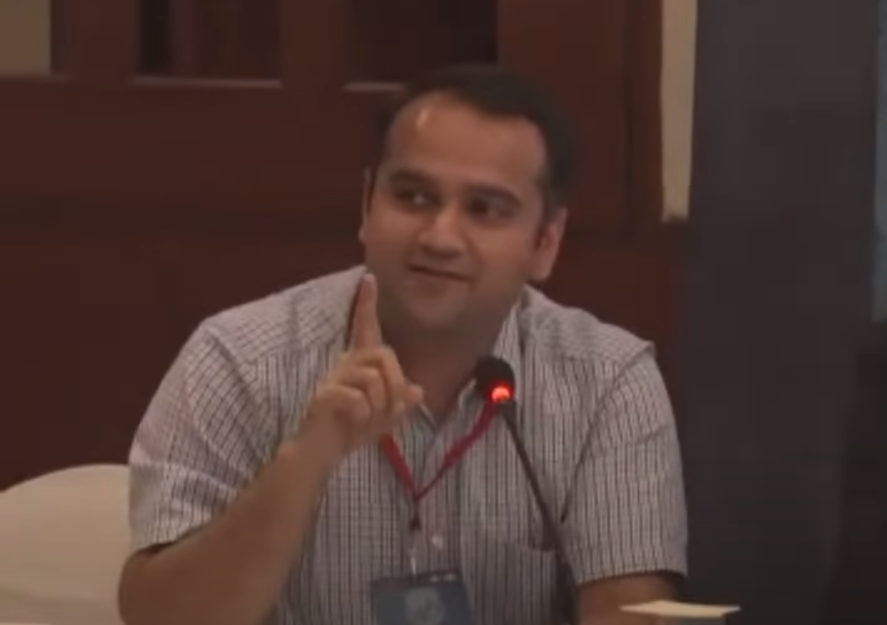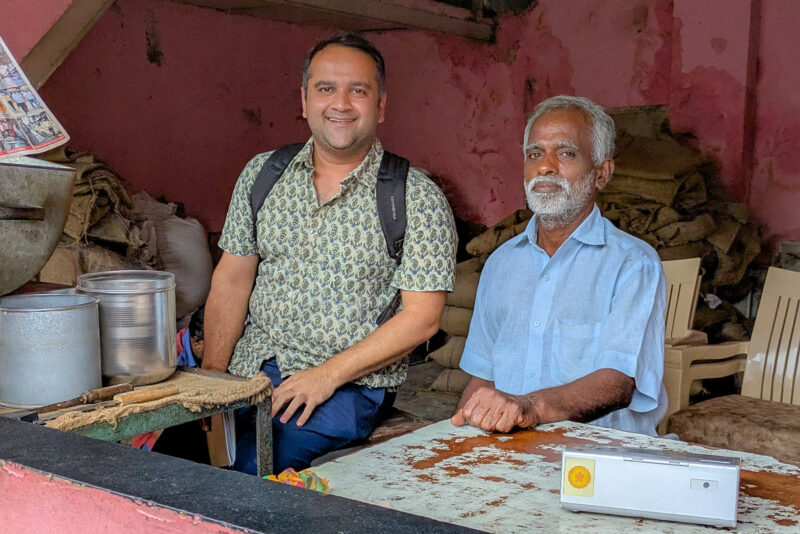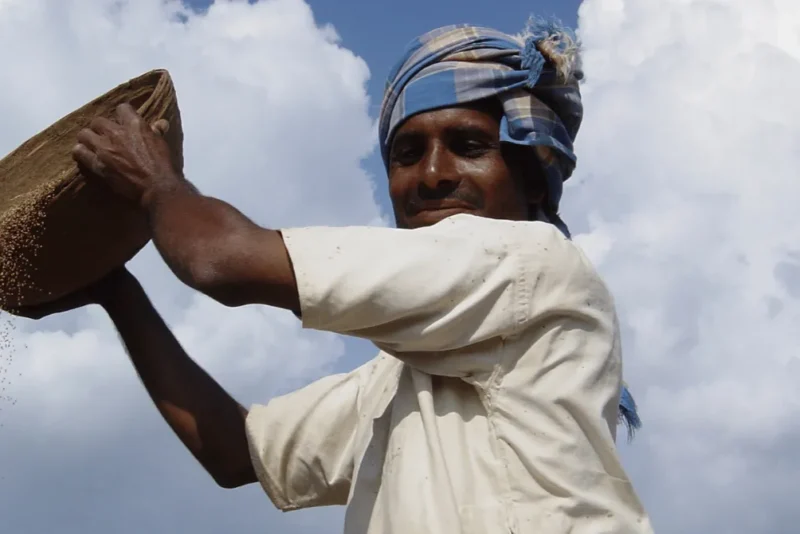TCI Researcher Talks True Cost of Food at World Sustainable Development Summit

At the World Sustainable Development Summit in New Delhi last week, the Rockefeller Foundation and the Tata-Cornell Institute for Agriculture and Nutrition (TCI) organized a panel event entitled “True Value of Food: A Call to Action to Solve Climate Change and other Crises.” The discussion focused on using true cost accounting to transform the agri-food system, address nutritional imbalances, and mitigate climate change.
True cost accounting is an analytical tool that aims to calculate the real cost of goods or services. It includes not only direct costs such as parts and labor, but also indirect social, economic, and environmental impacts.
“The price we pay for any food item does not reflect its true cost,” said TCI Postdoctoral Associate Raghav Puri, who spoke at the event. “It does partially reflect some costs, for example, inputs, seeds, fertilizers, land, and labor. But there are lots of positive and negative costs that do not get reflected in this price that we pay.”
Puri revealed the preliminary findings of an ongoing TCI study on the true cost of the Public Distribution System (PDS) in India. He stressed the importance of the study given growing concerns over the environmental and health impacts of intensive rice and wheat cultivation in northwest India. Puri said that TCI research indicates that the true cost of PDS rice and wheat production is actually 40% higher than what is reported when environmental and health impacts are considered. The burden of these costs is primarily felt by a handful of northwestern states where rice and wheat production are concentrated.
When completed, the TCI study will reveal the true cost of the current PDS food basket, as well as a the locally sourced basket and a basket augmented with more nutritious food items, such as pulses and millets.
“What we will be doing is quantifying and monetizing costs associated with the production, storage, distribution, and consumption of rice, wheat, millets, and pulses,” Puri said. “We will make public the data and also the model we use to arrive at costs, so that it is useful for future academic research.”
Deepali Khanna, vice president of the Rockefeller Foundation’s Asia Regional Office, opened the discussion by indicating why it is important to understand true cost accounting. “To accelerate the development of technological innovations, facilitate the adoption of new revenue streams in the environmental or nutrition services, as well as change incentives for farmers, and shift consumer preferences to a more sustainable and equitable and nourishing food system, we need a clear and transparent understanding of those costs and benefits—and how they are allocated,” she said.
“The price we pay for any food item does not reflect its true cost,” said TCI Postdoctoral Associate Raghav Puri, who spoke at the event. “It does partially reflect some costs, for example, inputs, seeds, fertilizers, land, and labor. But there are lots of positive and negative costs that do not get reflected in this price that we pay.”
In addition to Puri, panelists included Anupam Ravi, senior vice president at GIST Impact; Shariqua Yunus, head of the health and nutrition unit at the World Food Programme India; and Reuben Gergan, a biodiversity expert with the United Nations Environment Programme.
Gergan explained how using the TEEB (The Economics of Ecosystems and Biodiversity) framework, which has a comprehensive methodology to analyze food systems, can provide an outline of the true cost of food.
“The principal objective of TEEB is to mainstream the values of biodiversity and ecosystem services into decision-making by demonstrating those values in economic terms,” Gergan said.
Gergan added that while TEEB has wide applications, opportunities lie in strengthening the collection of data, and strengthening the capacity within government institutions in India to carry out true cost accounting.
Ravi stressed the importance of measuring the performance of agri-food systems holistically and using the four capitals approach, which encompasses natural capital, human capital, social capital, and financial value addition.
“These ideas need to be brought to the attention of the government,” [Yunus] said. “We should push policies to start incentivizing those stakeholders who are working to minimize the adverse impact on health and the environment and reimagine the entire structure around subsidies.”
“In natural capital, for instance, by using economic proxies to value greenhouse gas emissions, water and land pollution, and the hazardous and non-hazardous waste generated by the company, we will get to know the real value generated by the company,” Ravi said. “Nature doesn’t put a price on its soil, water, or carbon sequestration capacity, so there is very little attention that’s paid to the value that the agri-system has been getting and nobody wants to take action to maintain the stock or flows.”
Yunus stressed the importance of using true cost accounting analysis to draft policies and programs aimed at improving nutrition outcomes.
“These ideas need to be brought to the attention of the government,” she said. “We should push policies to start incentivizing those stakeholders who are working to minimize the adverse impact on health and the environment and reimagine the entire structure around subsidies. On food items, we should have a label on what the real cost of the produced food is in terms of its degrading impact on the environment and its impact on health, which could enhance consumer awareness.”
The panelists all agreed that strengthening the capacity for data collection is crucial for successfully implementing a true cost approach. “From the study we are carrying out in India, we see that the limitations of applying true cost accounting include the availability and quality of data to quantify and monetize costs and the resistance to changing existing systems,” Puri said.
TCI is undertaking its study of the true cost of the PDS with financial support from The Rockefeller Foundation. The findings and conclusions shared as part of this project are those of the authors and do not necessarily reflect the positions or policies of The Rockefeller Foundation.
Featured image: Raghav Puri speaking at the World Sustainable Development Summit. (Screenshot from TERI on YouTube)





